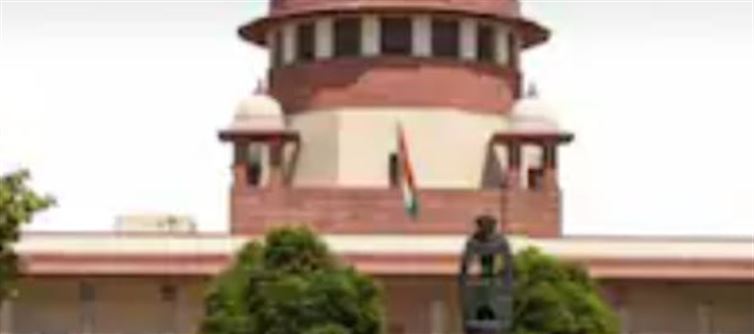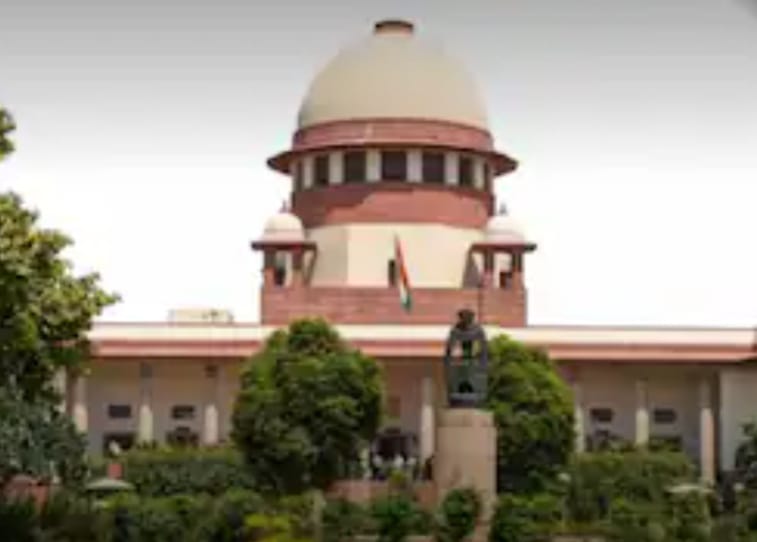
Waqf hearing will continue on thursday, supreme court hints at an interim order.
The petitioners also said that if the government claims any Waqf land, then the right to decide on it has been given only to government officials. This is wrong.

The supreme court heard the Waqf Act case for about two hours on wednesday (April 16, 2025). The court expressed its intention to give some interim orders for the immediate resolution of the ongoing dispute regarding the matter. However, no such order was given. Due to the lack of completion of arguments of the petitioners supporting the new law, including the central government, the court said that the hearing will continue on Thursday, at 2 pm.
About 150 petitions have been filed in the Supreme Court regarding the Waqf case. Out of these, 72 petitions were heard by the bench of Chief Justice sanjeev Khanna, Justice Sanjay Kumar, and Justice KV Vishwanathan. The court asked 2 questions at the beginning of the hearing-
1. Should the supreme court hear the case itself or send it to a High Court?
2. What are the main issues of the petitioners?
Kapil Sibal, Rajiv Dhawan, abhishek Manu Singhvi, Huzaifa Ahmadi, Sanjay Hegde, and many other senior lawyers presented arguments on behalf of the petitioners. They opposed giving place to non-Muslim members in the Waqf Board and Central Waqf Council. They also said that if the government claims any Waqf land, then the right to decide on it has been given only to the government officials. This is wrong.
These senior lawyers also expressed concern that the new law may result in the loss of the Waqf status of protected buildings. They also said that many old properties will be affected by the abolition of Waqf by User. On this, the Chief Justice said that claims are made against the delhi high court as Waqf property. An attempt has been made to make a system for claims in the new law.
After this, the court sought a reply from Solicitor General Tushar Mehta, who appeared for the central government, on the petitioners' points. The Solicitor General said that there would be no change in the status of all the properties that are registered. On this, the Chief Justice said that Delhi's Jama Masjid is also a Waqf by user. There was no provision for registration in india before the british came. In such a situation, there cannot be any documents for it.
The Solicitor General said that the properties which are not registered can be registered by the Waqf Board. It will be given the opportunity for this. Tushar Mehta also said that a very limited number of non-Muslim members will be kept in the Waqf Board and Waqf Council. Apart from ex-officio members, only two non-Muslim members will be there in the board. However, the judge did not seem completely convinced by these things. He asked whether this statement of the central government can be taken on record. Mehta said that he was ready to give a written statement. The same thing was also written in the JPC report.
Tushar Mehta opposed sending the case to any High Court. He said that the supreme court should issue a notice. The government will respond to it in two weeks. After that, the case should be settled by hearing it quickly. Senior lawyer Harish Salve told the court that 140 petitions are pending in the high court against the old Waqf law. The supreme court should also hear those petitions in this hearing.
The Chief Justice said that he wants to give two instructions as an interim solution. First, no Wakf property should be denotified till the hearing is pending, that is, their status should be allowed to remain as before. Second, no non-Muslim should be appointed to the Wakf Board for the time being except ex-officio members.
Solicitor General Tushar Mehta and the lawyers of some petitioners who had filed a petition in support of the new Waqf law opposed this interim order. They said that they should be given a chance to present their case. On this, the court said that the hearing would continue on thursday at 2 pm.




 click and follow Indiaherald WhatsApp channel
click and follow Indiaherald WhatsApp channel